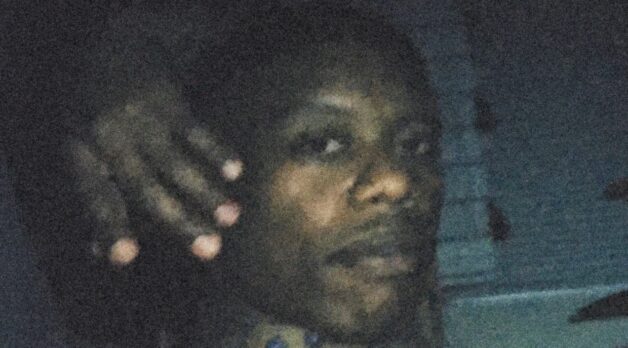Nolam Plaas
 Nolam Plaas
Nolam Plaas

Nolam Plaas was acting in a production of Lydia R. Diamond’s Toni Stone at San Francisco’s American Conservatory Theater, which unfortunately had its opening night scheduled for March 5, 2020. “It was an opening night/closing night kind of thing,” remembers Plaas, who headed back home to New Orleans when COVID shut down the production. “I said to myself, ‘This is a watershed moment. Either I’m going to make something, or I’m always going to be subject to outside forces that I can’t control.’ That’s when I started getting really serious about writing.”
More bad luck, however, befell Plaas’s first effort, a short film whose only copy (the editor deleted the master from his drives) was stolen in a FedEx package. Plaas wasn’t tempted to remake it, though—“I don’t like to backtrack,” he says. Supported by the New Orleans Film Society, which provided $2,000 in production funding and invited Plaas into its Emerging Voices Incubator Lab, the writer-director made a new short, this weary flesh, which will premiere in October at the New Orleans Film Festival. Troubling, mysterious and elliptical, the film is inspired by the life of Baton Rouge serial killer Derrick Todd Lee, and cuts back and forth across time to show the seeds of a violent consciousness forming as a young boy’s life is disturbed when his mother takes in a new lover.
“I really wanted to make a story about [Lee], but in an unconventional way,” says Plaas. “What goes through a serial killer’s head when he’s about to commit that act?” But there’s no direct reference to Lee in this weary flesh, and no actual violence either; were it not for repeated shots of a pair of pliers in bloody water, one might easily view the short as an impressionistic portrait of a melancholic childhood. Indeed, it wasn’t just Lee’s story but Plaas’s own youth—“my own experiences of feeling how big things felt when I was a child compared to how I am now”—that fed the short’s unnerving tone. “I was interested in moving between reality, memory and dream and [creating] these pop-out images that really stick with a kid,” Plaas says about this weary flesh’s unsettling flashbacks and arresting flash cuts. In conversation, Plaas readily accesses the young emotions and memories that feed into his adult work: personal moments, such as a night spent watching his father and friends gut fish in the backyard, illuminated by a single light and with one fish heart, removed from the body, still beating on the table.
After completing the short, Plaas showed the final cut to Beasts of the Southern Wild director Benh Zeitlin, who had been acting as an informal mentor. Zeitlin told Plaas that the Sundance Labs were looking for new screenwriters and asked if he had a feature script. “I was like, ‘I don’t have one completed, but I could finish one,” says Plaas. Twenty days later he submitted a draft of pecan, which was accepted into this past spring’s Sundance Institute Screenwriters Intensive. Drawing from his own memories of adolescence in the South, Plaas tells the story of a pre-teen coping with his first intimate relationship while other forces—family relationships, pornography, religion—wrestle within his consciousness. Like this weary flesh, the script finds an original storytelling vocabulary, this time leaning into haunted magical realism, to capture a young person’s inner life. It’s about, says Plaas, “how people want to do right, how people strive to meet these expectations and how they fall short of them.”
Plaas cites Edward Yang, Gaspar Noé and Andrei Tarkovsky as filmmaking inspirations. (A laptop screening of the latter’s penultimate film, Nostalghia, comprised a memorable Bumble Zoom date during the pandemic, he remembers.) While he works to get pecan in front of the camera, Plaas is teaching acting at a New Orleans junior high school and planning out other scripts. About his future directing career, he asks, “What kind of big swings do you need to take to have a unique voice? It’s very hard to be unique in this day and age with cinema because it’s been around for over 100 years. Most importantly, how do you do it while maintaing the truth?”—Scott Macaulay/Image: Brytanee from Oakland
